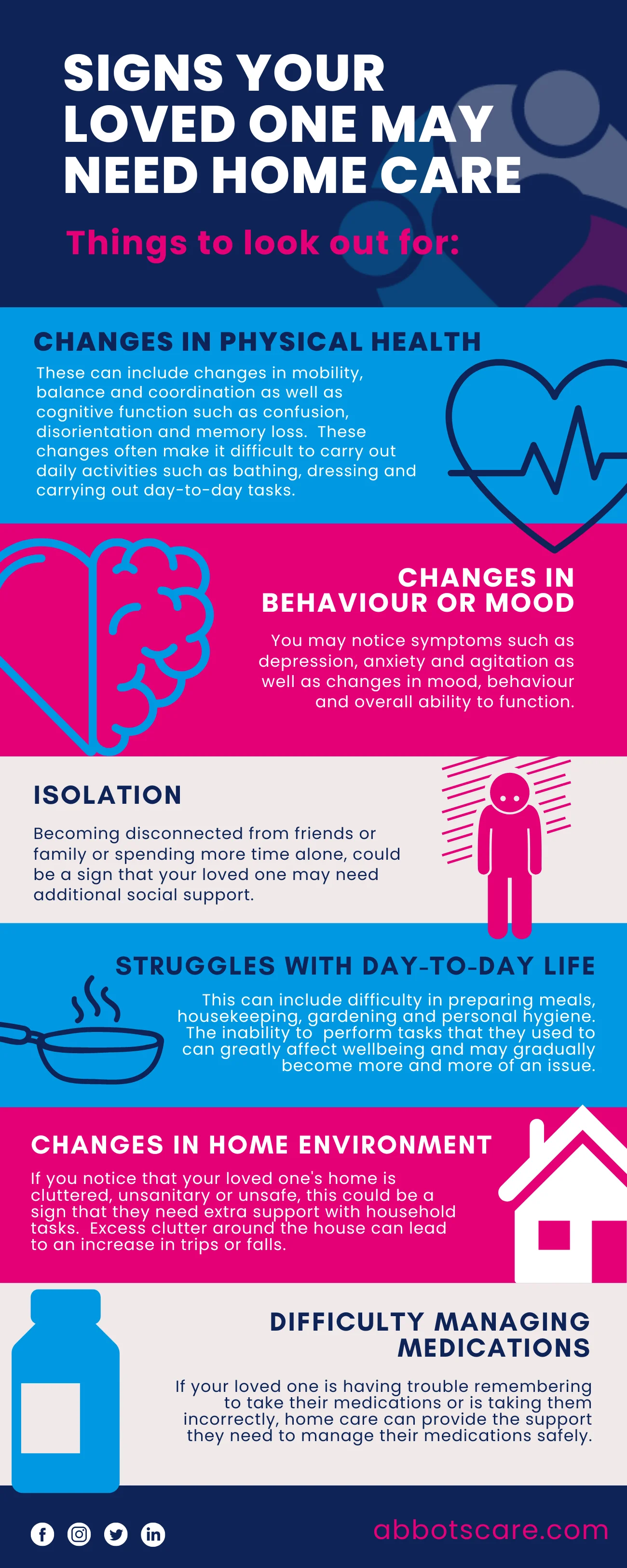Signs your loved one may need home care
Being aware of the signs and taking action, can ensure that your loved one receives the support they need to live a happy, healthy, and safe life.
Caring for a loved one can be a challenging and emotional task, especially when they are struggling with physical or cognitive issues that make it difficult for them to live independently.
It’s important to be aware of the signs that a loved one might need help as well as understand the care options available, so that you can take action to ensure their safety and wellbeing.

Here we identify some signs to look out for that may indicate your loved one would benefit from home care:
Changes in physical health
These can include changes in mobility, balance and coordination as well as cognitive function such as confusion, disorientation and memory loss. These changes often make it difficult to carry out daily activities such as bathing, dressing and carrying out day-to-day tasks.
Changes in behaviour or mood
You may notice symptoms such as depression, anxiety and agitation as well as changes in mood, behaviour and overall ability to function.
Isolation
Becoming disconnected from friends or family or spending more time alone, could be a sign that your loved one may need additional social support.
Struggles with day-to-day life
This can include difficulty in preparing meals, housekeeping, gardening and personal hygiene. The inability to perform tasks that they used to can greatly affect wellbeing and may gradually become more and more of an issue
Changes in home environment
If you notice that your loved one’s home is cluttered, unsanitary or unsafe, this could be a sign that they need extra support with household tasks. Excess clutter around the house can lead to an increase in trips or falls.
Difficulty managing medications
If your loved one is having trouble remembering to take their medications or is taking them incorrectly, regular home care visits can provide the support they need to manage their medications safely.

What should I do if I notice these signs?
If you notice any of these signs, it’s important to start a conversation with your loved one about their care needs. They may be resistant to the idea of receiving additional support, so it’s important to approach the conversation with sensitivity and understanding.
You may also want to consider seeking the advice of a healthcare professional to help determine the best course of action.
Want to understand more about home care?
Home care can provide the support and assistance that your loved one needs to live safely and comfortably in their own home. It can also provide you with peace of mind, knowing that your loved one is receiving the care and attention they need.
To find out more about our home care services and how we can support you or your loved one, contact our friendly team today. We are here to guide you through the care at home process from funding right through to how your loved one likes their tea.